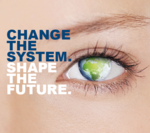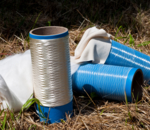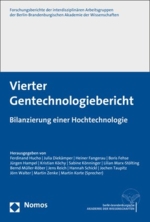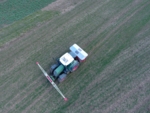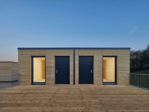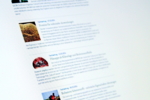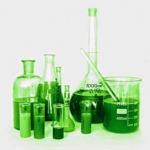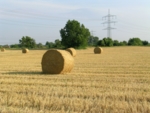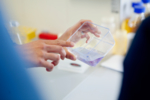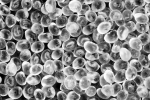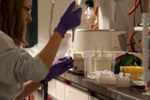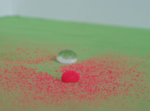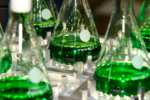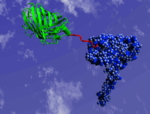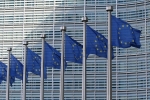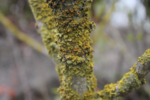-
-
Article - 12/03/2019
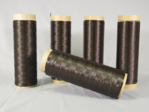
Carbon fibre is increasingly found in airplanes, cars and wind turbines. Carbon fibre is still made from oil and relatively expensive. However, this is soon to change. Researchers from the German Institutes of Textile and Fibre Research in Denkendorf (DITF) are working on the development of cost-effective carbon fibre made of lignin, a by-product of papermaking.
https://www.biooekonomie-bw.de/en/articles/news/biocarbon-fibres-made-of-lignin
-
Dossier - 04/03/2019
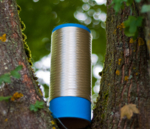
Baden-Württemberg is known for innovation in textiles and for playing a decisive role in the development of sustainable textiles for the future both in the clothing and the booming technical textile sectors. Companies and research institutes are focused on making the entire textile value chain from raw materials, production and useful life to disposal more sustainable than ever before.
https://www.biooekonomie-bw.de/en/articles/dossiers/sustainable-textiles
-
-
Article - 30/01/2019
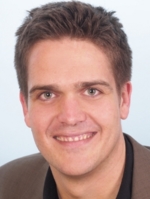
Industry has been using enzymes for over a hundred years. While it initially had to content itself with natural enzymes, it is now increasingly possible to design tailor-made biocatalysts with specific properties. The start-up company candidum GmbH from Stuttgart promises to achieve this faster than ever before - mostly thanks to accelerated virtual screening.
https://www.biooekonomie-bw.de/en/articles/news/candidum-computer-assisted-enzyme-design
-
-
-
-
-
-
-
-
-
-
Dossier - 20/03/2017
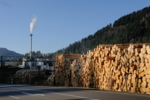
Petroleum is the raw material for basic chemicals. Growing demand and dwindling resources mean that the chemical industry is increasingly focusing on renewable resources. Lignin is a wood component that is proving to be a promising resource. It is currently almost exclusively used for generating energy, although it could also be used for other purposes. In Baden-Württemberg, a research consortium is specifically focused on exploring its…
https://www.biooekonomie-bw.de/en/articles/dossiers/lignin-a-natural-resource-with-huge-potential
-
-
-
Dossier - 14/06/2016

The number of publications and patents that involve the CRISPR/Cas system has been increasing exponentially since the technique was first described a few years ago. The increase in funding for projects involving CRISPR/Cas also demonstrates how powerful this new method is. The targeted modification of genomes (also called gene or genome editing) using CRISPR/Cas is extraordinarily accurate and also has the potential to cure hereditary diseases.
https://www.biooekonomie-bw.de/en/articles/dossiers/crisprcas-genome-editing-is-becoming-increasingly-popular
-
-
-
-
-
-
-
-
-
-
-
-
-
-
-
-
-
-
-
-
-
-
-
-
-
-
Dossier - 16/06/2014
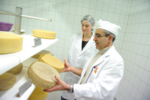
Biotechnology opens up numerous opportunities for the food industry. The targeted use of biotechnological methods can help reduce the quantity and number of unhealthy ingredients in foods as well as degrade allergenic substances. Genomic research and targeted breeding also greatly facilitate progress in agriculture. Food biotechnology therefore contributes significantly to saving resources, optimising harvest yields and producing better foods.
https://www.biooekonomie-bw.de/en/articles/dossiers/biotechnology-as-a-tool-for-the-production-of-food
-
-
Dossier - 16/12/2013
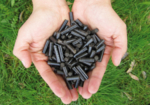
While the use of biotechnological methods for the purification of water, soil and air has already been state of the art for quite a few years, the use of microorganisms for the recovery of metal and mineral raw materials from industrial and agricultural waste has also started to attract the interest of scientists. This dossier addresses this topic, explains what geobiotechnology and urban mining are all about.
https://www.biooekonomie-bw.de/en/articles/dossiers/microbial-raw-material-recycling
-
-
-
Dossier - 23/09/2013
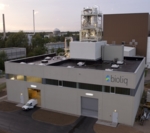
On the one hand, a bioeconomy relies on renewable resources to meet society’s need for food, energy and industrial products. On the other, it emphasises the role of biogenic material flows. The bioeconomy model is expected to reduce our dependency on fossil fuels in the long term. In order to implement the shift to a biobased economy on the regional level, the Baden-Württemberg government launched the Bioeconomy Research Strategy in summer 2013.
https://www.biooekonomie-bw.de/en/articles/dossiers/bioeconomy-a-new-model-for-industry-and-the-economy
-
Dossier - 08/07/2013

Biodiversity is essential for functioning, stable ecosystems and the wellbeing of the human race. Despite conventions, resolutions and action plans for the protection of biological diversity at all political levels, the decline of species diversity is increasing dramatically all over the world, including Germany. Targeted projects and funding measures have been put in place with the objective of stopping this deadly trend.
https://www.biooekonomie-bw.de/en/articles/dossiers/biodiversity-in-crisis
-
Dossier - 25/03/2013
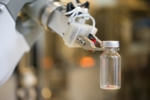
Processes that previously required pipetting analysis and production to be carried out manually are increasingly now controlled by automated systems. However this has not necessarily involved a complete reinvention of the wheel instead automation systems used in the plant construction and mechanical engineering sectors are being adapted and optimised for application in the life sciences.
https://www.biooekonomie-bw.de/en/articles/dossiers/biotechnology-goes-automated
-
Dossier - 22/10/2012
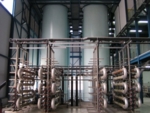
Biotechnologists are increasingly learning how to apply the knowledge about biological metabolic processes in the field of environmental protection including waste management and environmental rehabilitation. Environmental biotechnology is a field with great potential. In future bacteria and other microorganisms will most likely also contribute to sustainability and cost efficiency in other areas including the cosmetics and detergent industry as…
https://www.biooekonomie-bw.de/en/articles/dossiers/environmental-biotechnology
-
-
-
-
Dossier - 23/07/2012
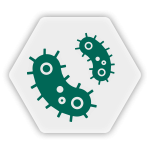
Extremophilic bacteria love it hot, sour or salty, toxic substances like heavy metals also do them good and even give them energy. As molecular and systems biology techniques get better and better, industry is also becoming increasingly interested in these exotic organisms. What potential does knowing the biochemistry of extremophilic bacteria have for the pharmaceutical, cosmetics and sanitary articles industries?
https://www.biooekonomie-bw.de/en/articles/dossiers/extremophilic-bacteria
-
-
Dossier - 14/05/2012
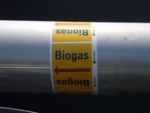
In addition to sunlight water and wind biogas is a regenerative source of energy that contributes to saving fossil resources. Germany is home to around 7100 biogas plants including 796 as of 2011 in Baden-Württemberg. In 2010 these facilities produced 11 per cent of the electricity generated from renewables in Germany. Energy-rich methane is the major constituent of biogas and is produced when organic compounds are broken down by bacteria in the…
https://www.biooekonomie-bw.de/en/articles/dossiers/biogas-a-promising-source-of-renewable-energy
-
-
Dossier - 26/03/2012
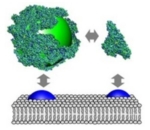
What is nanobiotechnology what is the difference between nanotechnology and nanobiotechnology and where and what nanobiotechnological research is being carried out in Germany and more particularly in Baden-Württemberg and which applications is it aimed at?
https://www.biooekonomie-bw.de/en/articles/dossiers/nanobiotechnology
Website address: https://www.biooekonomie-bw.de/en/search
